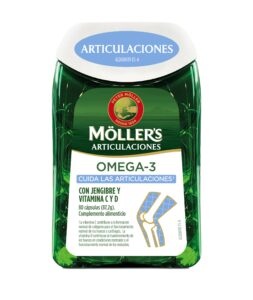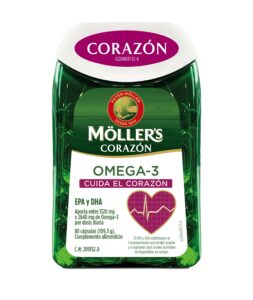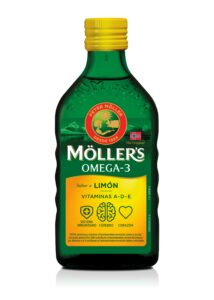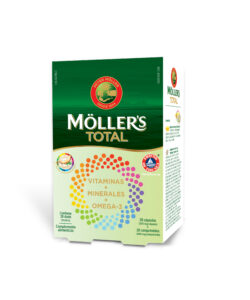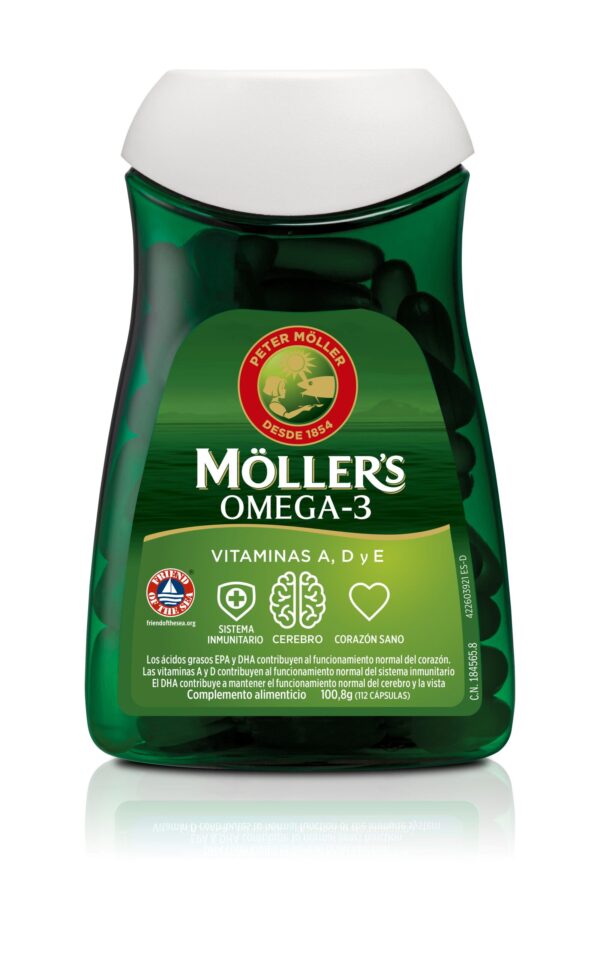Many people would like to stay healthy and lead an active lifestyle and this requires a strong immune system, which is an essential element of good health.
Home » Cod liver oil and your immune system

A properly functioning immune system must be well equipped in order to ward off attacks from bacteria and infections. If your immune system is working well, it protects you from diseases.
Read more articles about the immune system
Cod liver oil is a rich and natural source of vitamin D, which works with other nutritients to maintain the proper functioning of your immune system. Our bodies can produce vitamin D through a process that takes place in the skin when we are out in the sun. We can also ensure we obtain vitamin D by consuming fatty fish, milk with added vitamin D, margarine and butter. Unfortunately, in the North Hemisphere we don’t always have enough sunlight and don’t always consume enough foods containing vitamin D. So it’s a good idea to have a bottle of cod liver oil in the refrigerator as this will cover your need for vitamin D.
Cod liver oil is also a natural source of vitamin A, which works together with vitamin D to support the immune system. Other nutrients present in cod liver oil are EPA and DHA omega-3 fatty acids, which are important building blocks in all of the body’s cells. Your body isn’t able to produce omega-3 fatty acids by itself, which is why you need to regularly provide them through food or supplements.
You don’t like cod liver oil? Take two capsules of Möller’s Daily Health to get the same benefits.
What is good health?
Do you have a good lifestyle?
Lifestyle simply means the way in which you live. Health and lifestyle go hand in hand. You might feel you have a good lifestyle if you are physically active, eat healthily and generally experience a sense of wellbeing. Conversely, if you want good health you should also have a good lifestyle.
Physical activity is the major contributor to a good lifestyle, but diet, drugs, stress, sleep and social conditions are also play an important role. Being able to use the body properly to avoid injury also affects lifestyle. Physical activity can also prevent depression and help you to recover more quickly from mental illness, both of which obviously affect your lifestyle.
Diet can be a difficult topic for many. Perhaps you eat too much or too little or maybe you find it hard to know what foods to combine to have a balanced diet. It’s also important to eat food that contains important vitamins, minerals and dietary fibre, omega-3 and antioxidants. On top of all this, you also need to get enough energy, protein and the correct fatty acids. The requirement for these nutrients changes throughout your life. When you are older you also have different requirements than children and younger adults. Women also have different requirements than men. Pregnant and breastfeeding mothers also have special requirements.
When you get older, you lose muscle mass and your body requires less energy and therefore less food. You may lead a less active life than you did before, which is why you require less food. However, your need for minerals, vitamins and other nutrients remains the same. Of course, there are plenty of healthy and active older people, but when you reach 70 to 80 years of age, it’s easier to become ill, especially during flu season.
Some steps you can take to improve your lifestyle and health are to:
- eat a healthy and varied diet
- stay active
- watch your weight
- avoid too much alcohol and don’t smoke
- get enough sleep
- think positive
- practise good hygiene
What is good quality of life?
The World Health Organisation (WHO) defines quality of life as a state where the individual can realise their potential, cope with normal stressful situations, work in a rewarding and positive way, and be able to contribute to others and society.
Quality of life is a wide and somewhat diffuse concept that includes joy in, and a desire for, life. These are values that are rather felt than measured, which in turn are based on personal environment and choices. Quality of life doesn’t necessarily depend on being healthy or sick. It’s the moments between worries, sorrows, problems and ailments that matter. For example, if you have a chronic illness, a feeling of mastery can be important when talking about quality of life.
To sum up, quality of life is a combination of health, lifestyle, networks and social support. It’s about experiencing joy, meaning in life, satisfaction, security and a sense of belonging, as well as being able to use your strengths. It’s also about feeling interest in life, coping with everyday situations and a being committed to something or someone. If you have good quality of life, you will be able to cope better with the inevitable stressful situations in life.
Learn more
Exercise program for the elderly
Healthy Aging Healthy Bones
Healthy diet during pregnancy
Brain Healthy Aging
Good health, lifestyle and quality of life – What does it all mean?
Cod Liver Oil Healthy Aging
Get inspiration on our Instagram
This error message is only visible to WordPress admins
There has been a problem with your Instagram Feed.
